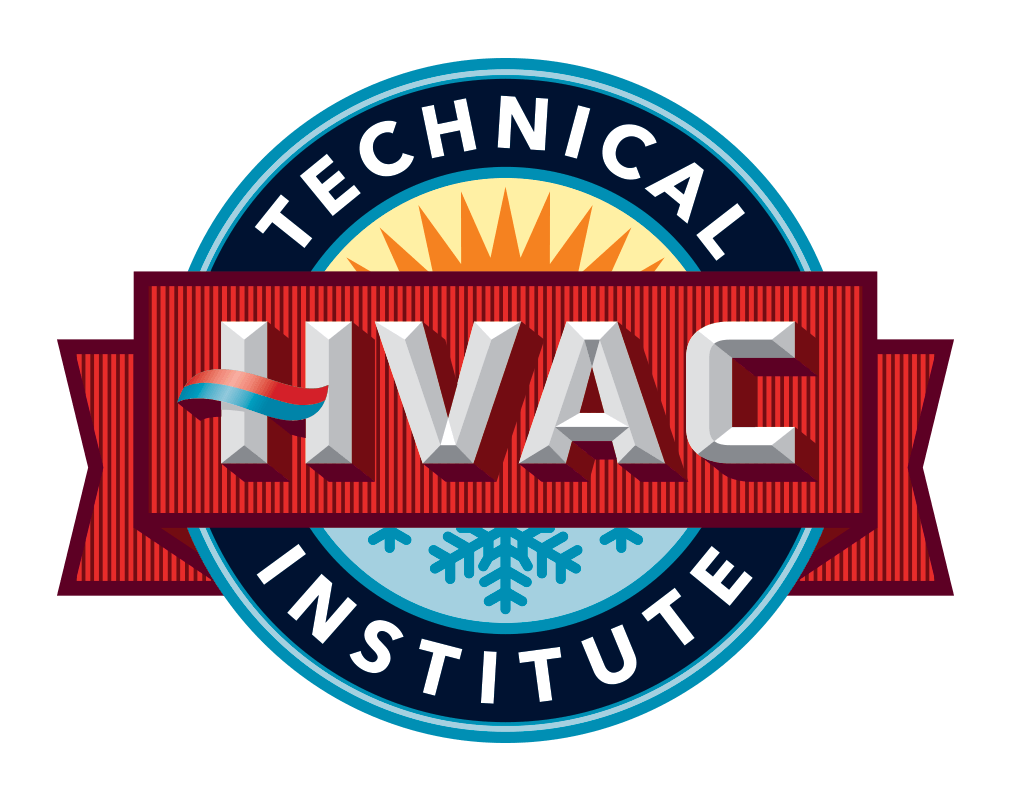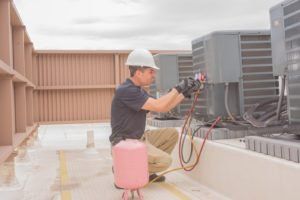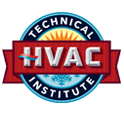HOW NEW HVAC TECHNICIANS CAN STAY HEALTHY IN HOT WEATHER
With warm weather on the horizon, how can you stay healthy as a new HVAC technician? If you’ll complete your training program in time for the summer heat, take a look at what you need to know to stay safe on the job.
CHOOSE YOUR WORK ENVIRONMENT WISELY
The U.S. Bureau of Labor Statistics projects jobs in the HVAC field will grow at a rate of 13 percent between 2018 and 2028; much faster than average. This could potentially mean the addition of 46,300 jobs in the trade. With this high projected change, you may have your pick of jobs.
If you’re sensitive to the summer-time heat, don’t enjoy working in the hot sun, or have a medical condition that requires you to work in a cool (or temperate) environment, explore possible positions in:
- Office buildings. HVAC technicians who work in corporate settings may have the opportunity to spend their days indoors — in a cool, comfortable, air-conditioned environment.
- Medical facilities. Like office buildings and other corporate settings, medical facilities offer a climate-controlled environment for HVAC technicians to work.
- Schools. Colleges, high schools, and other educational institutions are also climate-controlled indoor settings that eliminate the outdoor issues HVAC technicians may face in the summer.
Even though many residential HVAC contractors work indoors, you may need to work on an outdoor system component or in an excessively warm home. If you choose to work in residential heating and air conditioning or another setting that exposes you to the environment, you can take steps to reduce the summertime risks.
LEARN HOW TO HYDRATE PROPERLY
Hydration is crucial to your summertime health and safety. Adequate hydration is important for a healthy heart, brain, and muscles. While dehydration can happen any time of the year, you’re more likely to feel the effects in the hot, humid summer months.
If your HVAC job takes you outside or into a hot indoor space, pay attention to your hydration needs and:
- Drink often. Don’t wait until you’re thirsty to drink. Thirst is a late sign of dehydration. Carry a reusable water bottle with you and drink often during your workday.
- Drink water. Even though soda and sports drinks are liquids, these options are also high in sugar.
- Avoid caffeine. Caffeinated beverages can worsen dehydration.
You may need to drink more water or dink more often if the weather is excessively hot and humid, you sweat heavily, or you’re active and exert yourself physically.
PROTECT YOURSELF FROM THE SUN
The heat isn’t the only issue HVAC technicians contend with in the summer. If you work outdoors, you need to protect yourself from the sun’s rays. To reduce the risks of sun-related damage and skin cancer development:
- Stay in the shade. If possible, work outdoors in a shady environment.
- Cover your skin. Protect your head with a hat and your body with long sleeves and long pants. If the weather is extremely warm, you may not want to choose this option. Choose lighter weight clothing with a protective UV coating instead of heavy items.
- Use sunscreen. When it’s too hot to cover your body with heavy or long clothing, use sunscreen to protect your skin. Choose a broad-spectrum water- and sweat-resistant product with a high SPF. Reapply the sunscreen every two hours (or more often if you sweat).
Sunscreen can coat your hands and make them slippery. This can pose a safety risk — especially if you can’t handle machinery, tools, or other equipment easily. Rinse the palms of your hands after sunscreen application to minimize this potential hazard.
REDUCE THE RISKS OF HEAT-RELATED ILLNESSES
Whether you work outside all day, go outdoors for a few hours at a time, or work indoors in a hot or humid environment, you need to protect yourself from heat-related illnesses such as heat stroke, heat cramps, and heat exhaustion.
Heat-related illnesses can cause issues that range from mild muscle cramps and headaches to nausea, vomiting, dizziness, confusion, and loss of consciousness. Even though heat-related illnesses pose serious risks to your health, you can take steps to protect yourself while you’re on the job:
- Take breaks. Talk to your employer about heat-related illness issues and your ability to take breaks. You may need to go indoors (into an air-conditioned space) often during hot days to reduce the risks to your health.
- Slow down. If possible, slow your activity and pace yourself during the workday.
- Work early or late. Ask your employer if you can schedule outdoor services for earlier or later in the day — when the heat isn’t at its peak.
- Wear light clothing. If you don’t need to wear protective clothing, wear a lighter-weight uniform for your outdoor or high-heat job.
If you feel dizzy, achy (including muscle aches or headaches), or confused, or you have a change in pulse or sweat profusely, alert your employer or another technician immediately. You may need medical attention for a heat-related illness. Don’t wait for symptoms to worsen.
Are you ready to join the HVAC field? Contact HVAC Technical Institute for more information.


